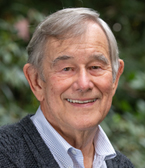First-ever state ranking of charter student performance on the National Assessment of Educational Progress
School History
“They’re not good,” the head of a Fortune 500 company lamented about U.S. schools not long ago. “Students learn little, education gaps are widening, and not much can be done about it.” Pressed on the matter, he relaxed. “It’s not a serious matter. Our universities are excellent, and we can import the talent we need—though we do need to worry about social peace.” Sadly, his public comments (which I’m paraphrasing here) neatly summarize private conversations heard when business and civic leaders gather. A few years back, a prominent U.S.
With much the same characters and plot lines as The Brothers Karamazov, though absent its gripping prose, Hostages No More evokes memories of Fyodor Dostoevsky’s masterwork on good and evil. Former Secretary of Education Betsy DeVos admits she does not have “a way with words,” but larger-than-life forces and personalities propel themselves straight through the vanilla writing and overwhelm Horatio Alger-style vignettes about families who chose their schools.
Nuggets of amber occasionally reward patient beachcombers who wade through miles of cold, gray clay on the southern shores of the Baltic Sea. Nuggets likewise await the patient reader who wades through this dense, repetitive private-school apology.
A star has at least five points. So I was told by a senior colleague at a time in my life when I was desperately trying to figure out how to burnish just one. Even by that standard, James S. Coleman is securely situated in a celestial constellation, as five points can be discerned even if one looks only at his research on schools.
Was school reform in the decades following the Civil War an upper-middle-class effort to maintain control of the schools? Was public education simply a vehicle used by Protestant elites to impose their cultural ideas upon recalcitrant immigrants? This work challenges such standard, revisionist interpretations of American educational history. Urban public schools were created by a politically pluralistic society.
Comprehensive description of federal education programs that highlights the change in federal policy that takes place after 1964.

